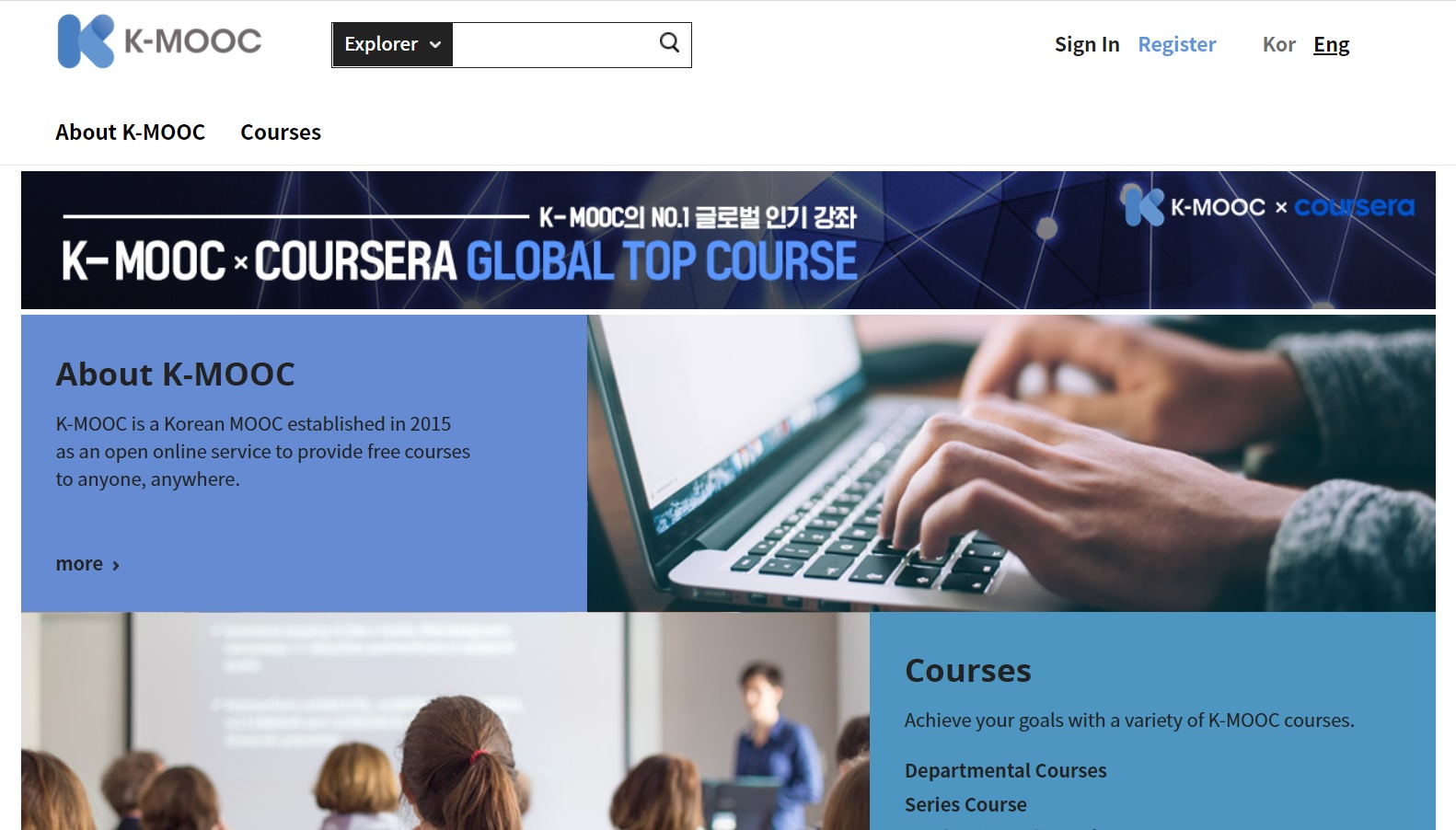[Feb] Korea makes massive investment in open lecture platform K-MOOC
Date Feb 20, 2022
 A screen capture from the South Korea's Massive Open Online Courses or K-MOOC's homepage
A screen capture from the South Korea's Massive Open Online Courses or K-MOOC's homepage
The Korean government plans to invest 25.8 billion won (US$21.5 million) in the nation’s Massive Open Online Courses (K-MOOC) to scale up and enhance free online education services amid the COVID-19 pandemic.
Over 1,650 online courses, including 300 new ones that meet learner demands for future strategy-related content, will be available on K-MOOC this year, according to the Ministry of Education and the National Institute for Lifelong Education, January 26.
K-MOOC is a public web-based learning platform established in 2015 amid a global paradigm shift for tertiary education and allows anyone to participate in lectures from universities and prestigious institutions at no charge.
With the pandemic lingering and people continuing to stay home, K-MOOC enrollment grew by about a third compared to last year with a total of 960,000 registering for classes. As of January 2022, the platform offers 1,358 courses and has served more than 2.26 million applicants.
With the investment, the platform will provide Korean and English subtitles for all newly created courses for non-Korean users, and sign language translation for culture courses, enhancing accessibility for hearing-impaired learners.
Based on learner feedback from 2021, the platform plans to create 200 additional documentary-like courses with local and international scholars and specialists in various fields, including the humanities, social sciences, natural sciences and new technologies.
The latest developments in extended reality technology will be applied to 20 courses in Korean history and arts, while 20 artificial intelligence and strategic management courses consisting of newly created and existing lectures will be on offer.
For foreign language study, the platform plans to provide 32 courses of various levels, consisting of online lectures and offline training with a problem-based learning (PBL) style.
The platform will also develop artificial intelligence and big data-based algorithms to optimize suggestions from learners with different interests, as well as to improve usability and operations.
From this year, credits acquired from K-MOOC courses will be recognized at universities and the country’s academic credit bank system, in which a learner may achieve an academic degree through a diverse range of learning, experiences and qualifications.
Yoo Eun-hae, Deputy Prime Minister and Minister of Education, said that the COVID-19 pandemic raised the necessity and importance of lifelong education with a minimum of human contact and that the ministry plans to reinforce K-MOOC by providing quality courses to meet learner demand.
The minister also said that K-MOOC provides everyone a chance to a better future via lifelong education, regardless of one’s income level and location.
**If you have any questions about this article, feel free to contact us at kocis@korea.kr.**

The Ministry of Culture, Sports and Tourism's "Korea Here & Now" work can be used under the condition of "Public Nuri Type 1 (Source Indication)."




